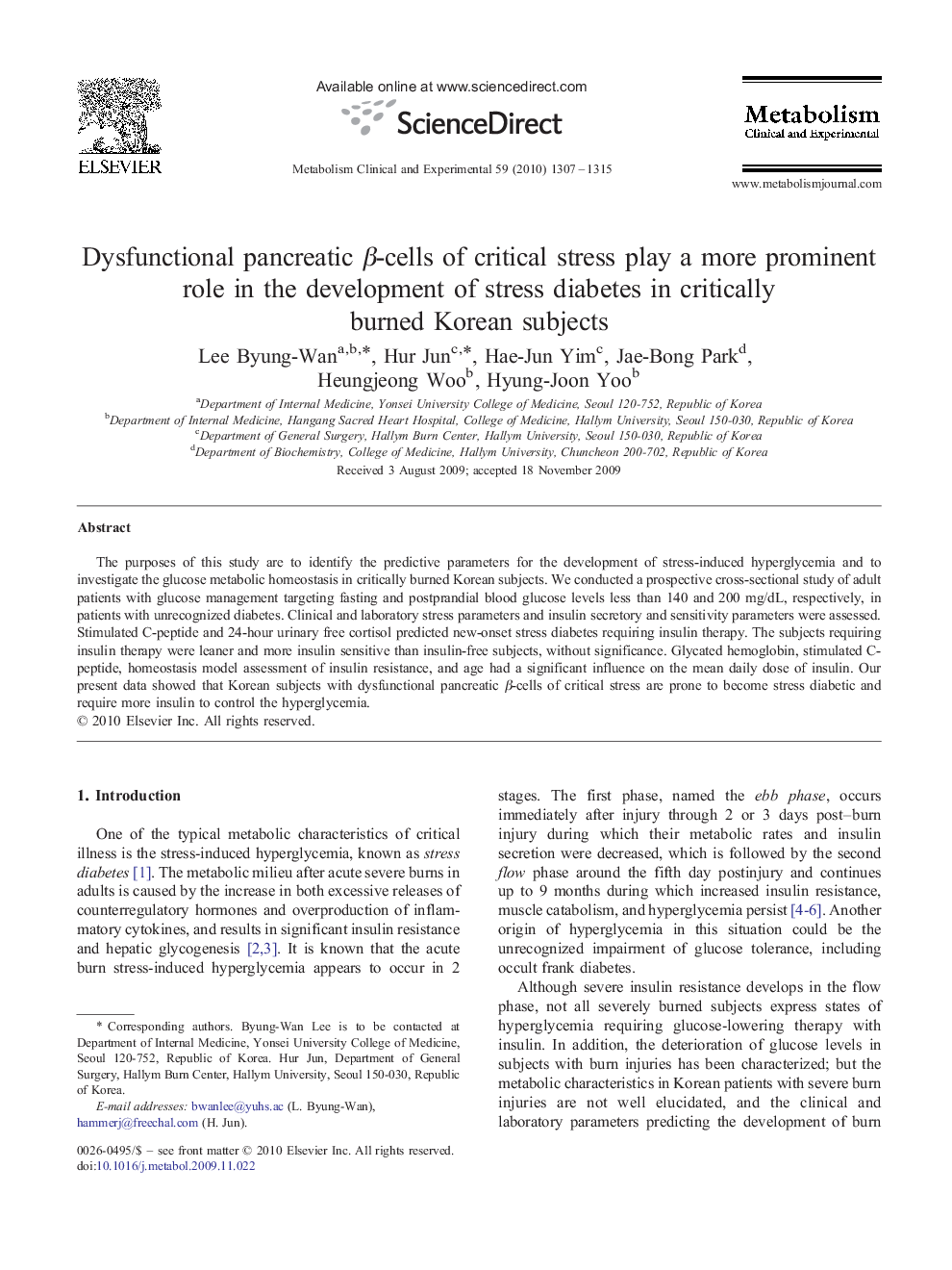| کد مقاله | کد نشریه | سال انتشار | مقاله انگلیسی | نسخه تمام متن |
|---|---|---|---|---|
| 2806814 | 1157135 | 2010 | 9 صفحه PDF | دانلود رایگان |

The purposes of this study are to identify the predictive parameters for the development of stress-induced hyperglycemia and to investigate the glucose metabolic homeostasis in critically burned Korean subjects. We conducted a prospective cross-sectional study of adult patients with glucose management targeting fasting and postprandial blood glucose levels less than 140 and 200 mg/dL, respectively, in patients with unrecognized diabetes. Clinical and laboratory stress parameters and insulin secretory and sensitivity parameters were assessed. Stimulated C-peptide and 24-hour urinary free cortisol predicted new-onset stress diabetes requiring insulin therapy. The subjects requiring insulin therapy were leaner and more insulin sensitive than insulin-free subjects, without significance. Glycated hemoglobin, stimulated C-peptide, homeostasis model assessment of insulin resistance, and age had a significant influence on the mean daily dose of insulin. Our present data showed that Korean subjects with dysfunctional pancreatic β-cells of critical stress are prone to become stress diabetic and require more insulin to control the hyperglycemia.
Journal: Metabolism - Volume 59, Issue 9, September 2010, Pages 1307–1315